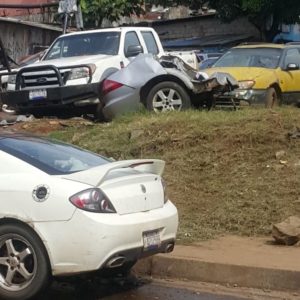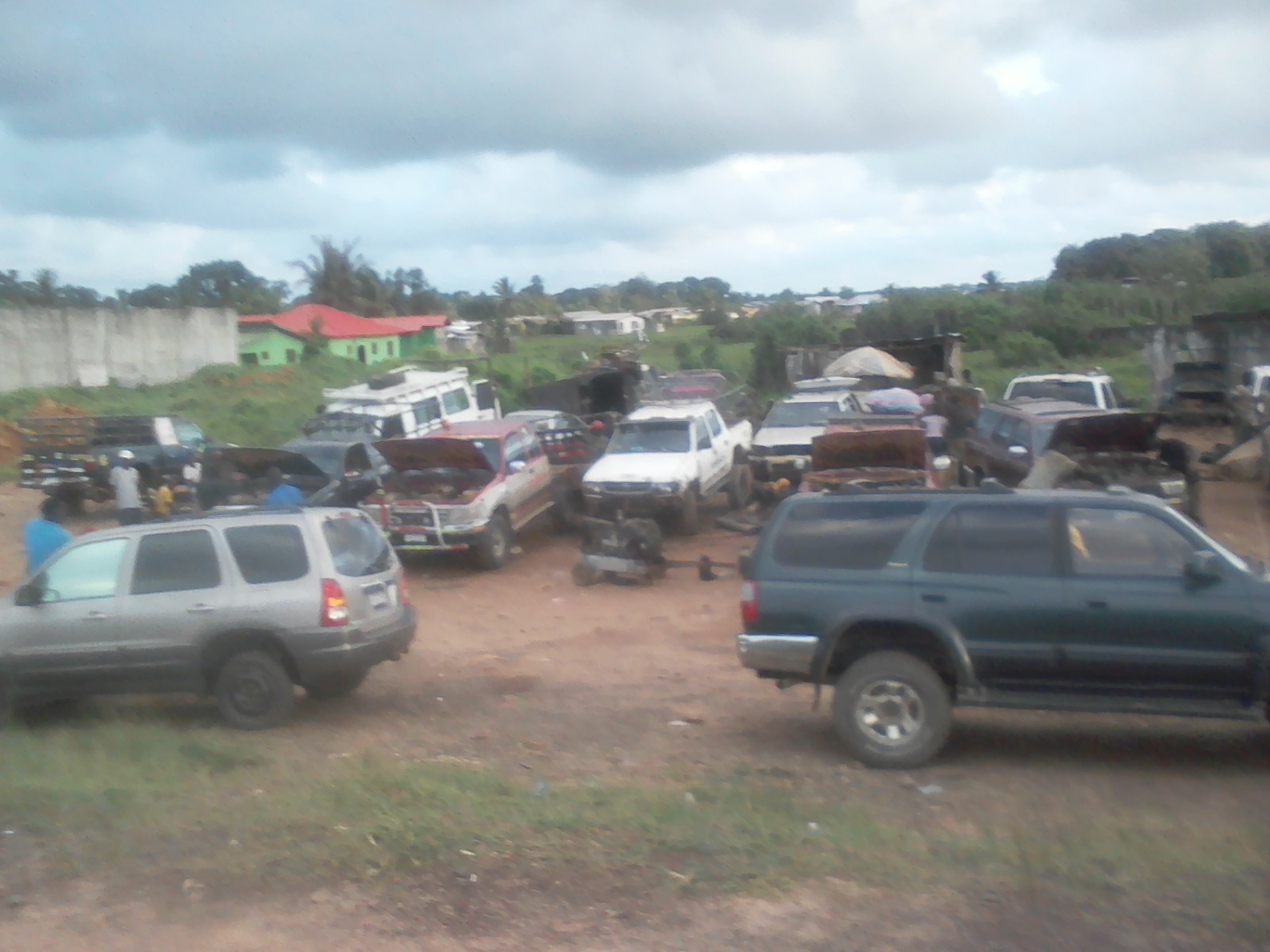By Edwin M. Fayia, III edwinfayia@yahoo.com
A five-month survey conducted by www.newspublictrust.com has revealed that the hundreds of garages, scrap depots characterized by the wanton disposal of plastic bags are potential conduits of the challenging environmental and sanitation degradation in almost all parts of Liberia.
The survey further shows that Montserrado County carries the highest numbers of garages, scrap depots where some of them are playing host to some of the nation’s hardened and suspected criminal gangsters, causing misery and heartbreaking criminal activities in many parts of Liberia.
On top of that unending menace and nightmare use oil and unhygienic wastes from the engines of vehicles and generators convey to the various garages for repairs and essential services continue to cause grave sanitation and environmental havoc for their immediate neighbours’ backyards in several parts of the country.
As a result of those hazardous wastes being uncontrollably disposed of in many parts of Liberia, carrying out backyard gardening and periurban farming activities are becoming practically not initiated by the dedicated and committed periurban farmers in Montserrado, Grand Bassa, Grand Cape Mount and other important areas in the country.

In addition, some of the garages and scrap depots situated at the mouths of wetlands and mangrove swamps, owners of those entities without due regards for the abuse being committed of the endanger areas. And the biodiversity under the water continue to dispose of all used oil and depreciating irons in violation of environmental regulations and sanitation laws of Liberia.
According to well-placed environmentalists and conservationists, wetlands and mangrove help to control flood water and the trees grown in wetlands are important treasures for human beings and should be protected by relevant Liberian Government agencies charged with the responsibility for the environment in every form, shape and manner in the country.
However, garage and scrap depot owners put up stiff arguments that their business entities are paying substantial taxes to the Liberian Government and they should be not intimidated and harassed by any sanitary and environmental regulations and laws of Liberia.
Besides, they also denied the abuse of the wetlands and mangrove swamps despite of the visible appearances of depreciating irons and used oil being disposed in the various restricted areas by laws and regulations crafted and issued by the Liberian Government regulatory bodies in the country.
In swift reactions, property owners and residents in the premises of the scrap depots and garages have expressed grave concern about the operations of the environmental and sanitation violations. This is happening without the EPA and other conservationist groups making some professional and technical comments about the wetlands and mangrove swamps in Liberia.
They however underscored the urgent need for the EPA as the most legitimate regulatory body of the Liberian Government to wake up from its perpetual slumber and initiate proactive actions in the implementation of laws and regulations, regarding best practices in the environmental sector of the abuse and violated Liberian environment.
In separate interviews with one affected property owner and a resident early this week, they pointed out and wondered what was essence of training twenty female environmental journalists some time agi in Gbarnga, Bong County and update their impacts in terms of reporting and highlighting the grave conditions of the Liberian environment.
Mr. Charles B. Washington, 54, of the Samuel K. Doe Boulevard in Oldest Congo Town in Monrovia, intimated that the EPA and other advocacy groups have become toothless and well-trained groups that only bark and do not bite nor blow since the new Liberian Government elected and sworn in office few years ago.
Mrs. Davidetta Hunter Browne, 48, resident of SKD Boulevard in Oldest Congo Town told www.newspublictrust.com that practical steps should be initiated now by the EPA and other conservationist groups. This, she said, would help save the wetlands and mangrove swamps in the country from grave environmental degradation and possible extinction.

